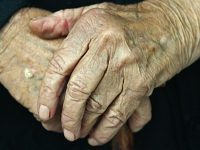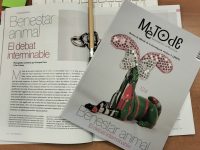
 Fernando Morant |
||
|
Until the 1990’s women were virtually invisible in medical science. From basic research to routine medical practice, women have been studied and treated according to men’s criteria. This situation has led to widespread misconceptions like women having fewer heart attacks than men, or being more susceptible to mental illness. Carme Valls-Llobet, an endocrinologist and specialist in gender and health, has participated in the conference on the implementation of equality in scientific research organized the University of Valencia. Although universities continue to teach that medically, men and women are alike, the introduction of the gender perspective in research can prove this is not so. For example, during the 1980’s and 1990’s only men participated in myocardial infarction studies, which led to the conclusion that men were the ones that suffered them. The inclusion of women in subsequent studies provided new data, especially about their symptoms, which are very different and in many cases difficult to diagnose and treat. In women, myocardial infarction becomes evident with abdominal discomfort and nausea and pain does not radiate to the left arm, but to the jaw. Another case is when complaints and symptoms are made invisible because they are associated to mental illness straight away, when in many cases they are related to other factors. This is what happens with environmental endocrine disruptors, which particularly affect women, and which in many cases are behind anaemia or hypothyroidism, some forms of which are similar to anxiety or depression. Failure to systematically not include thyroxin tests in routine analyses, or one that controls ferritin more comprehensively makes these two diseases go unnoticed and women end up being medicated with psychotropic drugs. A situation that is fairly common, but not normal. |
«During the 1980’s and 1990’s only men participated in myocardial infarction studies, which led to the conclusion that men were the ones that suffered them» |
|
 MediaUni-Universitat de València On the left, Carmen Valls-Llobet. On the right, Capitolina Diaz, professor of sociology at the University of Valencia and president of the Association of Women Researchers and Technologists (AMIT). |
«Carme Valls-Llobet believes that, twenty-five years after the first medical research studies from a gender perspective, stereotypes are still very present in modern medicine»
|
|
|
Thus, Dr. Carme Valls-Llobet believes that, twenty-five years after the first medical research studies from a gender perspective, stereotypes are still very present in modern medicine. Stereotypes that may cause women’s health problems to remain invisible, a fact that places them in an inferior position and also puts them under the control of medical treatments based on fear or on inadequate prescriptions of antidepressants. Carme Valls-Llobet has published, among others, the books Mujeres, salud y poder (Women, Health and Power) (Cátedra, 2009) and Mujeres invisibles (Invisible Women) (Debolsillo, 2006). Carme Valls-Llobet’s talk is framed within the conference on the implementation of equality in scientific research, which is taking place during the months of May and June in the different campuses of the University of Valencia. Organised by the University’s Equality Unit, its aim is to raise awareness on gender bias in scientific research among teachers. The conference’s aim is also to train researchers so they can incorporate the gender perspective into their work projects as set out in the European Union programme HORIZON 2020. Empar Pons Barrachina. Journalist, Valencia. |
 MediaUni-Universitat de València
|
|






